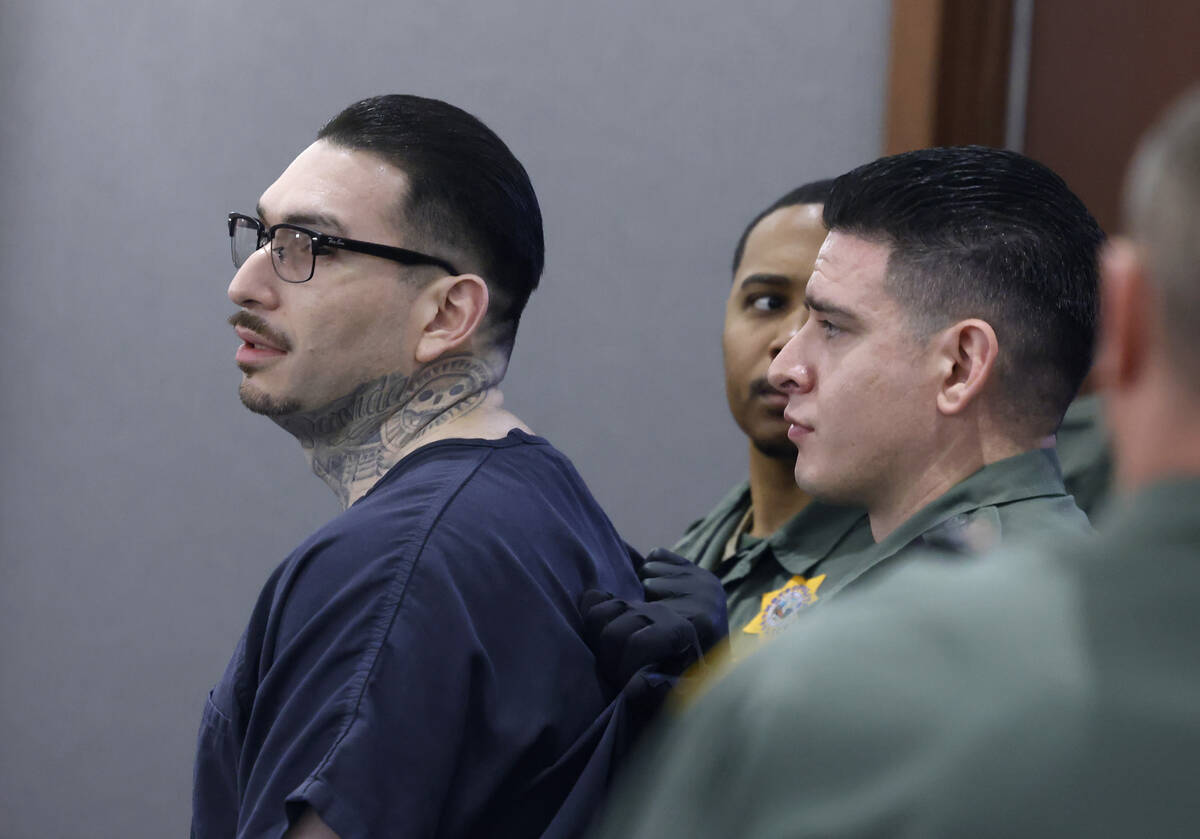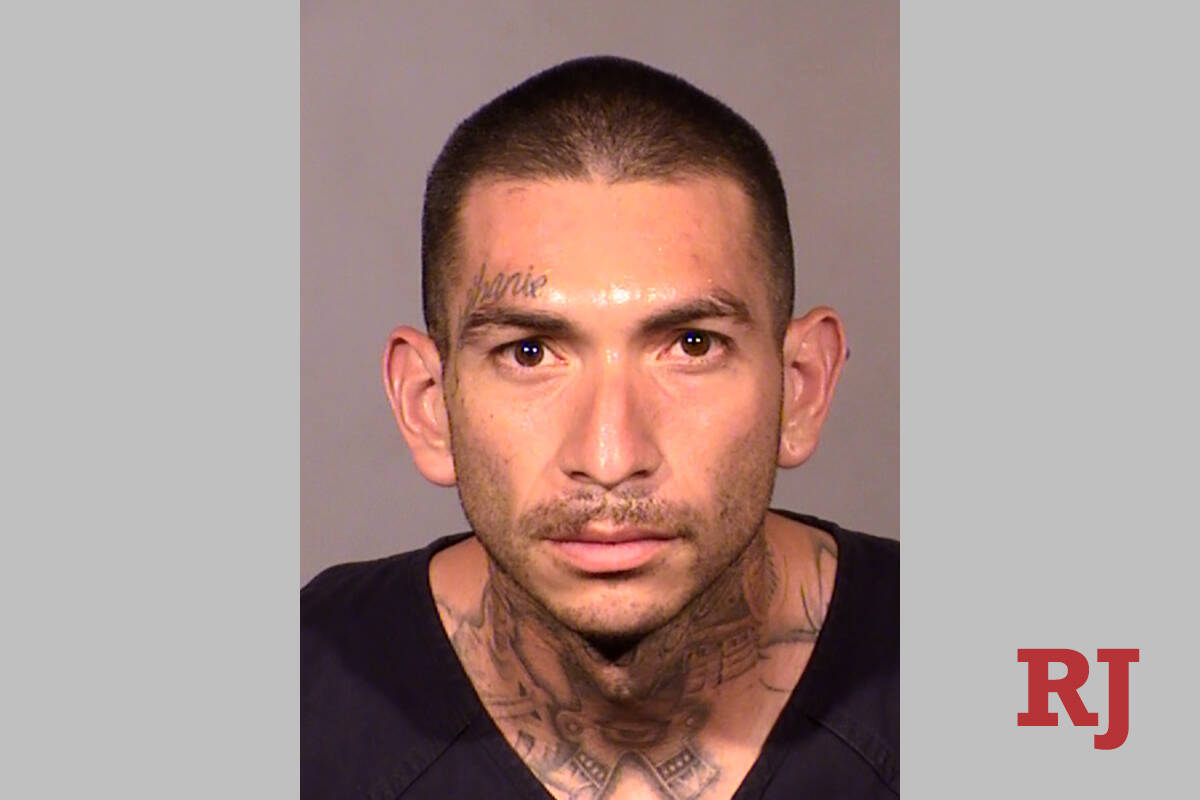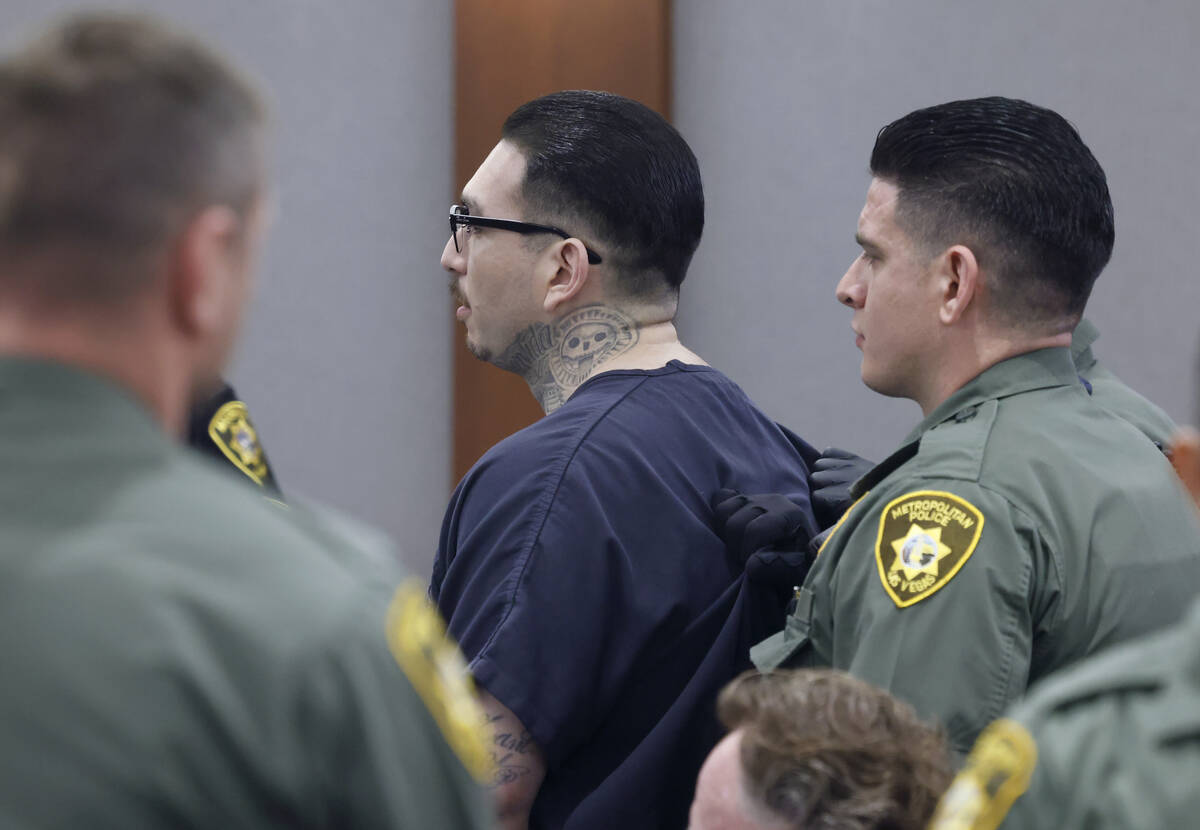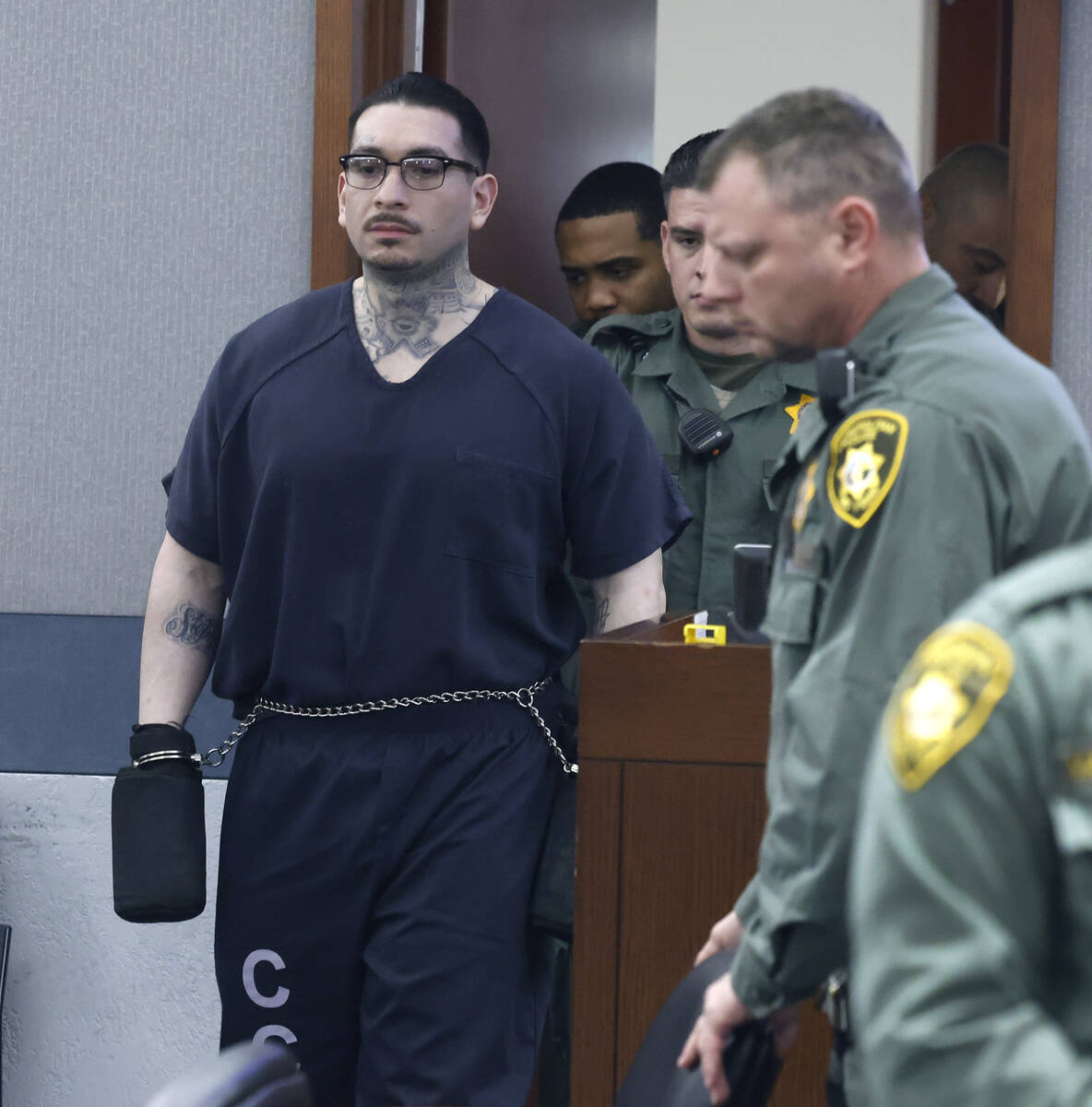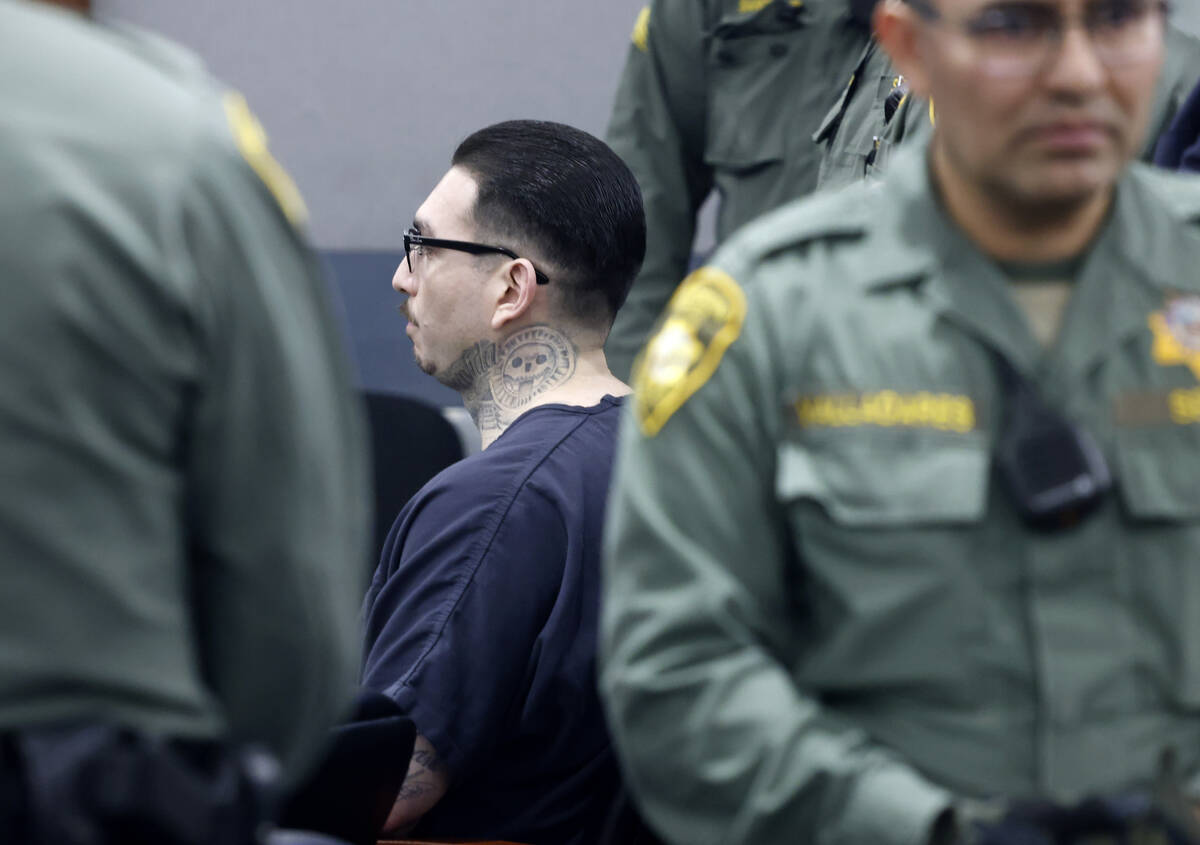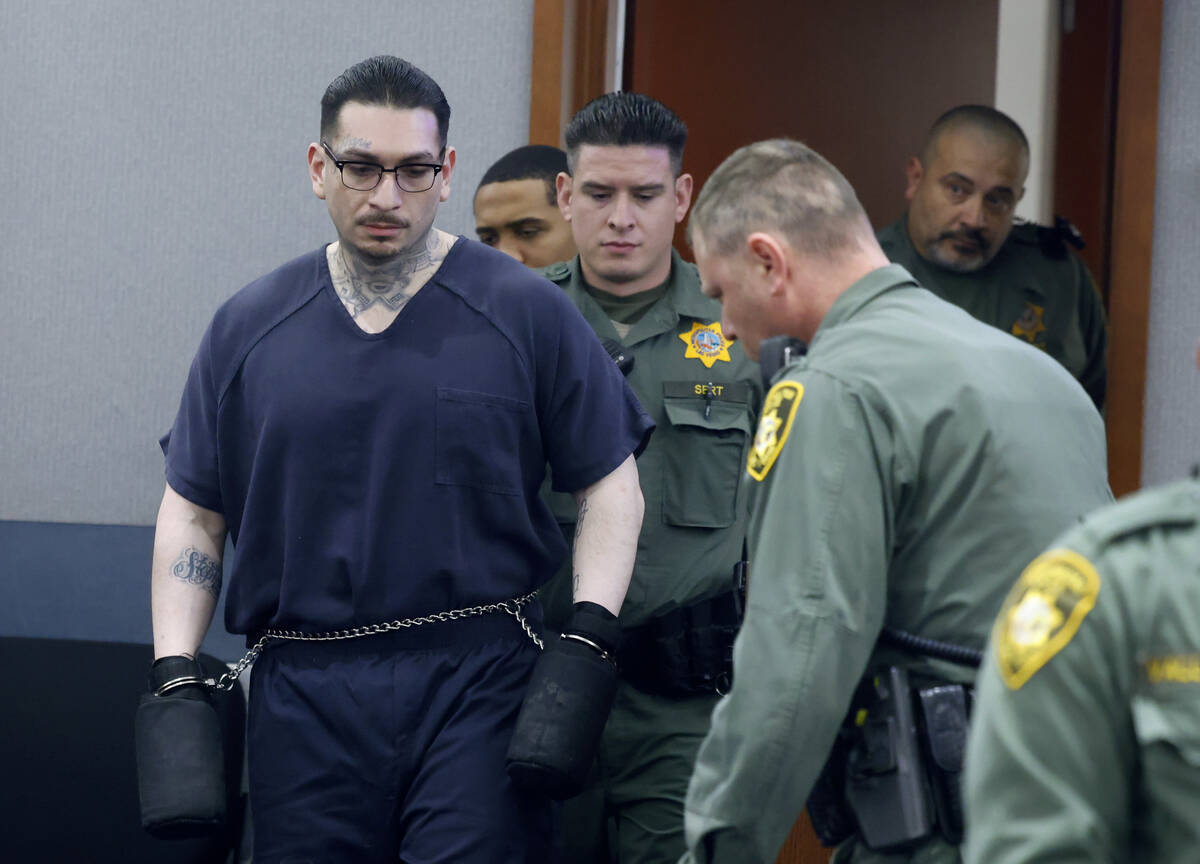Man who killed 3 in Las Vegas Valley crime spree gets life with no parole
Ramon Acosta dropped to his knees before a judge Friday, clasped his hands as if in prayer and begged for the toughest possible sentence for the man who killed his brother and two other men in a three-day Southern Nevada crime spree.
“He should not see the light of day,” Acosta said of John Carrillo. “He should be in prison for the rest of his life.”
District Judge Jacqueline Bluth listened and ordered a life without parole sentence for Carrillo, 33, who killed three people in 2021 and previously faced the death penalty.
Carrillo pleaded guilty in November to a slew of charges, including murder, attempted murder, robbery and grand larceny auto.
He admitted to fatally shooting Miles Smith, 55; Ruben Garcia, 36; and Abraham Acosta, 32. Defense attorneys argued that his crimes stemmed from drug addiction.
“None of the three victims in this case provoked Carrillo,” Assistant District Attorney Pamela Weckerly said. “None of the three engaged in any risky behavior. None of the three antagonized Mr. Carrillo in any manner.”
‘Obviously not satisfied’
Prosecutors withdrew the death penalty as part of plea negotiations, according to Bluth and defense attorney Robert Langford.
That upset some members of Acosta’s family.
“I don’t understand how the DA gave this guy life just because you don’t want to spend the money,” Taurino Acosta Jr. said in court. “It’s ridiculous.”
Addressing those in the courtroom, Daniel Acosta said, “One day, when this (expletive) happens to you guys’ family, just remember this (expletive) day, especially the DA, especially you, your honor, all you guys. Just remember this (expletive) day when it’s your grandkids, it’s your parents going to the grocery store and getting callously freaking murdered for no (expletive) reason.”
“Watch your back,” he added.
After court, Langford said, “It was the most profane victim speakers I’ve ever heard, but it’s to be expected.”
Weckerly declined to comment on the family’s complaints about the death penalty being taken off the table, but said she agreed with Bluth’s sentence and believed it would protect the community.
“We are obviously not satisfied,” Maribel Flores, Acosta’s sister, said after the hearing, but the life without parole sentence was still “something.”
She described her brother as “the kindest person ever.” He was born and raised in San Diego, she said, and loved the chain 7-Eleven.
Ramon Acosta said that was his brother’s favorite store because it matched his July 11 birthday.
It was at a 7-Eleven on Maryland Parkway in Henderson that Carrillo asked him for a light, then shot him in the face when he approached.
Flores said Acosta had stopped to buy Gatorade after helping a friend move.
Attorney arguments
The life without parole sentence was requested by prosecutors.
After killing Smith, Carrillo rolled him in a blanket and took his phone, Weckerly said. Garcia did not resist when Carrillo tried to rob him, she said, but Carrillo still fatally shot him.
Besides those Carrillo killed, she said, he shot Abel Angel in the face while Angel played a slot machine at a convenience store, robbed multiple people and kidnapped a woman.
His actions were “literally a lifetime of criminal activity jammed into a couple of days,” the prosecutor argued.
Carrillo told the court that he feels “strong remorse” and carries “the burden of these victims.”
It was difficult for him to understand the depth of his drug abuse, he said, because he never received treatment or believed he had a problem.
He added: “There’s nothing I could do to turn back the hands of time.”
Langford and fellow defense attorney Joshua Tomsheck asked Bluth for a life sentence with the possibility of parole, plus a separate sentence for weapons enhancements.
“There are mitigating factors to consider including evidence that suggests that the crimes of conviction were the product of drug addiction, specifically a form of methamphetamine psychosis caused by days of constant methamphetamine use and exacerbated by sleep deprivation (caused by drug use),” the attorneys wrote in a sentencing memorandum.
Carrillo suffered “almost unbelievable trauma” in his childhood, and his parents engaged him in drug use and trafficking before he was a teenager, the filing said.
Tomsheck said he and Langford have come to know a “sober version” of Carrillo, one that is calm, rational and remorseful.
“He does have a desire to better himself when given an opportunity to do so,” Tomsheck said.
Carrillo grew up in an environment of “extreme violence,” his attorney said, and used methamphetamine for five days leading up to the crimes.
For four of those days, he did not sleep, according to Tomsheck.
Bluth acknowledged Carrillo’s difficult childhood but found that his past did not mitigate his actions enough to entitle him to the possibility of parole.
“There is obviously and clearly a lot of pain in this room,” she said.
Contact Noble Brigham at nbrigham@reviewjournal.com. Follow @BrighamNoble on X.



